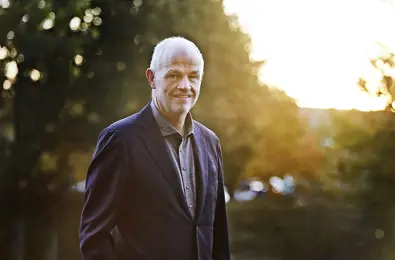A critical test of any business with an ambitious strategy for sustainable growth is how it handles an unexpected challenge. In 2022, that challenge appeared on 24 February when Russia invaded Ukraine – the beginning of great suffering for the Ukrainian people and the catalyst for a global energy crisis and surging inflation.
For us at Arla Foods Ingredients, the uncertain situation regarding energy supplies led us – along with many other production companies – to make provisions for keeping operations running in the event of a shortage. In Denmark, this involved preparing our two large processing plants to switch from natural gas to fuel oil. Danmark Protein subsequently ran partially on fuel oil towards the end of the year.
Unchanged commitment
Such a measure, however temporary, is an inevitable setback with regard to our 2030 carbon reduction goals. But it has not changed our commitment. During 2022, we launched a new roadmap to sustainability excellence, which redoubles our efforts to stay on target despite the challenges we face. As we enter 2023, our top priority from an energy perspective is to continue the transition from fossil fuels to renewable energy sources.
Major investments are underway to achieve this, including the initial steps to electrify more of our processes and investigations to identify new sources of carbon-neutral energy. Ultimately, we want to ensure that we will never need to resort to fuel oil again in a crisis.
Reduce, reuse, recycle
Another of our priorities is to integrate circular bioeconomy principles in our growing business – a logical extension, you could say, of our founding vision to utilise the whey ‘waste’ from cheese processing. This requires us to consider how we can reduce, reuse and recycle each of the resources we employ in our operations.
To limit our energy consumption, some of our most recent initiatives have focused on capturing and repurposing surplus heat in production. We are also looking at further investments to reduce our reliance on well water. Plans are already moving ahead to double the capacity of our new technical water facility, which upgrades treated wastewater to a quality suitable for reuse in technical applications.
In addition to these efforts, we are naturally concerned with making the best use of the raw materials that go into our products and packaging. During 2022, we completed the task of mapping how much of our powder products ends up as food waste, and we made more progress towards our goal of fully circular own-brand packaging by 2030. Both areas will be the subject of continuing investigation and improvement in 2023.
Collaborations for health and wellbeing
Our sustainability roadmap is not just about contributing to the health of the planet. The health and wellbeing of the people that live on it are at the core of our work within lifelong and affordable nutrition. This is where strategic partnerships with research institutes, NGOs and other companies can make a real difference.
As you can read on the following pages, our collaborative clinical studies are exploring the potential nutritional benefits of milk and whey ingredients for infants, the elderly and those with diet-related health conditions. Over the past ten years, our affordable nutrition partnerships have produced a series of sustainable supply chain models to help alleviate malnutrition in countries where childhood stunting is rife.
A responsible mindset
Across our organisation, initiatives to secure diversity and inclusion, empowerment and, above all, safety for colleagues are all part of the effort to instil a responsible mindset in everything we do.
There’s still much to be done. In 2022, our roadmap to sustainability excellence defined our direction. Planet, people and partnerships are the three pillars that will guide us towards our goals through 2023 and beyond.

